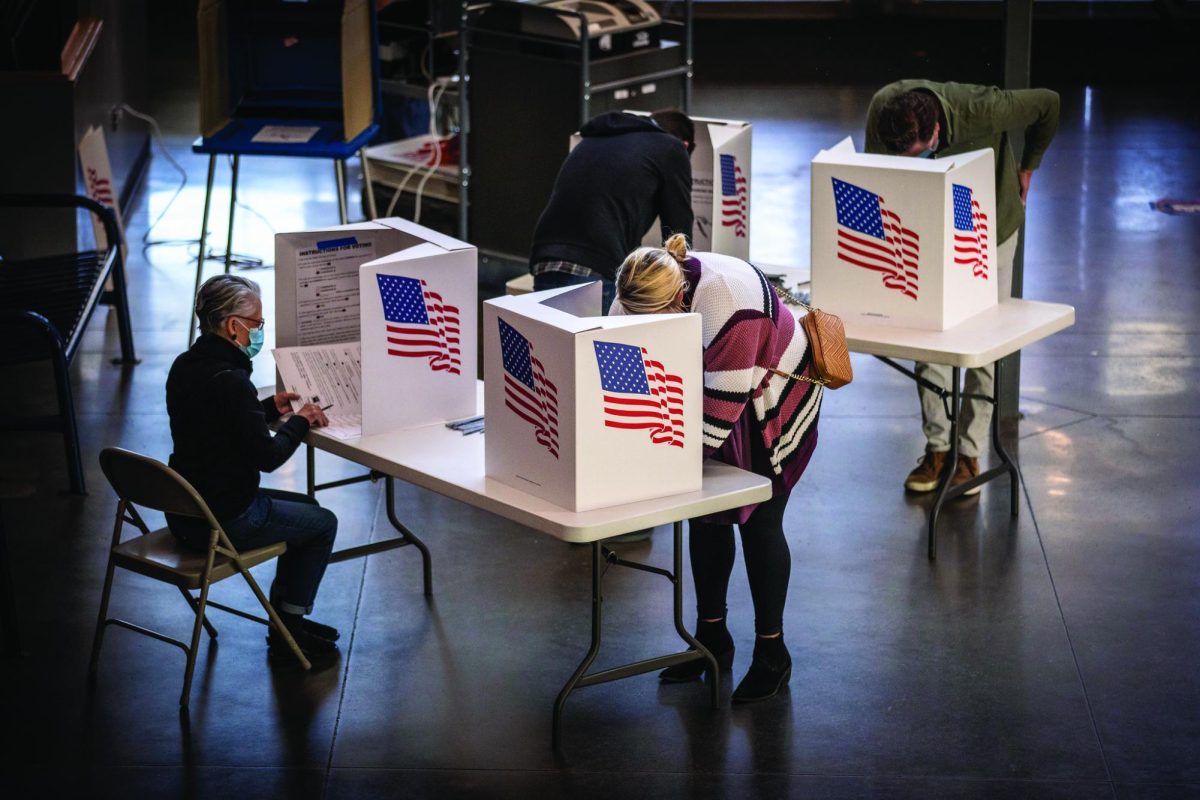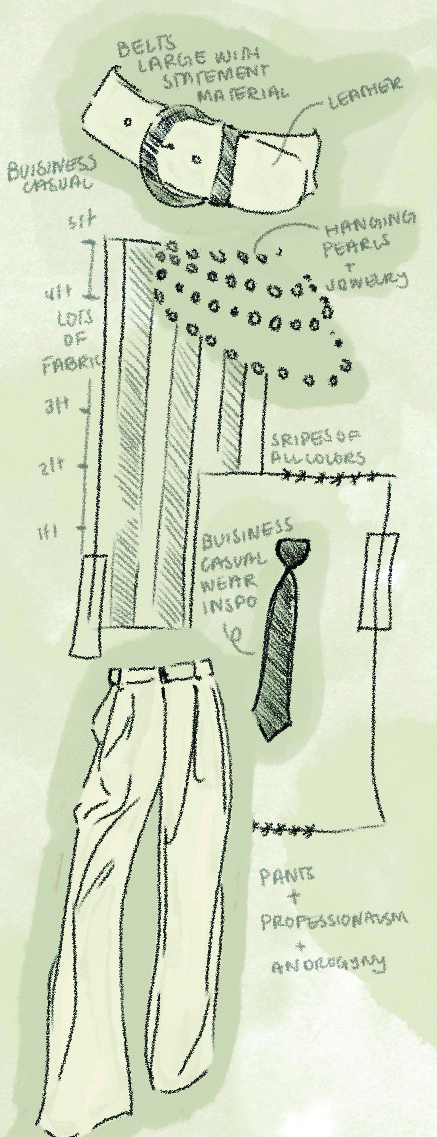
Grades are up, and opinions vary as to whether the reason is inflation or better students. Either way, agreement seems to be that students are working harder.
Grades have gone up. That’s a fact.
The question some faculty are asking is whether that rise is driven by better student performance or by grade inflation, and whether, even if better grades are merited, high average GPAs still pose a problem.
Some worried that teachers are handing out too many high grades, so As no longer hold real value for students or colleges.
Others, however, said students are earning their higher grades, and colleges understand the high number of strong students at top preparatory schools.
The issue of increasing GPAs in high schools and colleges has been a national debate for years. In its most recent five-year report on high school graduates, the U.S. Department of Education found that median high school GPAs have risen about a third of a grade from 1990 to 2005.
Peter Johnson, director of undergraduate admissions at Columbia University, told the UV that the rise in grades is “pandemic” and the reasons for it are “mysterious and interesting.”
Here, the issue was most recently brought up by the English Department during its curricular review last spring, which showed that the average unweighted English GPA rose a quarter point from 1998-2008. That was consistent with an earlier school study, conducted by Math Department Head Chris Talone and history instructor Tom Millar, that showed that from 1995-2005, unweighted GPAs increased across all departments, with the largest in English – .33 points – and math – .28 points. Science had the smallest increase at .11 points.
In recent interviews, the school’s top administrators and a number of department heads said they don’t believe grade inflation is happening at the school. However, a survey conducted by the UltraViolet of 35 faculty members who teach core subjects showed that 96.7% felt that inflation was at least part of the reason for increasing grades. Of those, all but one felt it was a problem.
Joseph Koetters, head of the English Department, is the one department leader who voiced strong concerns about grades. He said one of the biggest issues is that the Marlborough community has never had an open conversation about it.
“The people who run the school and the people who teach the classes must educate themselves about the issues surrounding why this is happening and what the ultimate consequences might be,” he said.
Future Implications
Giving too many high grades, even if earned, is problematic, said English instructor Chris Thompson, who came to Marlborough this year after 14 years at Georgetown Day School in Washington, D.C.
“It’s kind of like in the Olympics, if everyone got a gold medal, the sports wouldn’t really seem quite as enriching. The competition wouldn’t seem as worthwhile. There’s a reason you have gold, silver and bronze,” he said.
Koetters, who believes grades at the school are inflated, said students worry too much about grades in terms of getting into college. Grades are supposed to be a tool for students to measure their academic progress, he said.
“It’s not about the A, it’s about what creates the best learning environment,” he said.
Talone, however, said he thinks grades are accurately measuring academic progress.
“If students were getting into college with high grades, but were underprepared, then it would be a problem. Their high grades are getting them into college, and they’re doing well there. They’re earning the grades that they’re getting,” Talone said. “I don’t think it’s any kind of crisis.”
Hard to Measure
The job of evaluating grade inflation is close to impossible. Often, standardized tests such as the SAT are used as a comparative measure to examine grade increases.
For instance, the median SAT scores at independent schools rose 21 points for the critical reading section and 36 points for the math section over the last 15 years, according to the National Association of Independent Schools, showing at least some increase along with national grades.
However, Co-Director of College Counseling Michael Heeter said that SAT increases are more likely attributed to test prep. Additionally, he said that eight years ago the College Board re-centered the SAT to reflect a 500 mean score since they were dipping down to 470, so scores look like they went up as a result.
Regardless of how they correlate to grades, our students’ median SAT scores are far above the NAIS medians.
Another standardized test that Marlborough students take is the Independent School Entrance Exam (ISEE). According to Director of Admissions Jeanette Woo Chitjian, the average ISEE score of incoming students has risen about half a point in each section of the test, on a nine point scale, over the last 10 years.
However, Woo Chitjian also pointed out that just like the SAT, the ISEE is subject to increased test prep over the years.
As Talone spoke of, another potential measure of the merit behind grades is how students are performing in college.
The English department, as part of its review, conducted an informal survey of alumnae, and the clear majority of those who responded said they felt, in terms of writing skills, well-prepared for college.
Talone said he regularly gets the same kind of feedback from graduates.
“Every alumna I’ve talked to has said ‘I’m doing well,’” he said.
Both Talone and Koetters, though, agreed that information is mainly anecdotal, and that students who answered the English survey were more likely to be those doing well.
Up to this point, the school hasn’t formally studied alumnae performance in college.
Even the hard data on grade increases isn’t without question. For instance, most of the increases occurred from 1995 to 2002, with several department medians slightly falling from 2002 to 2005. The English department’s review did show its grades continued to increase – another .05 – from 2005 to 2008, but other departments have not done similar studies.
Co-Director of College Counseling Monica DePriest said that though she hasn’t officially crunched the numbers, she hasn’t seen a significant increase in upper school grades in the last five years.
Due to sensitivity among students about where they fall in the school grade distribution, the UV is not reporting actual GPA medians, but is instead only giving the increases.
Pressure Due to College Admissions
One theory for the trend in higher grades is the increasing selectivity of the college admission process.
“The pressure on students to do well to get into college has gone up and up and up. With that in mind, many kids are working harder. The result is that when you keep the same standard over the years, kids will perform better against it,” English instructor Thompson said.
Head of School Barbara Wagner also said that the increasing prevalence of the early application process has also factored in.
“When I became Head of School 20 years ago, there wasn’t this early application process, so I think that too is added pressure to students and to faculty,” she said.
According to the faculty survey, teachers are aware of how grades can affect college acceptances. Almost 40% said they would raise a senior’s quarter grade of 89.4% to an A- because she’s applying to college.
At the same time, a large majority of teachers said they don’t feel pressure from the college counseling office or administration as a factor in grade inflation.
Ironically, as college pressure pushes more students to do better, their grades can potentially mean less to students.
Marlborough doesn’t report average GPAs for the senior class to colleges.
Heeter said that even though he believes students earn their grades here, colleges could be skeptical of the school’s rigor if they saw the average.
“We might have some explaining to do,” he said.
College admissions officers interviewed by the UV said many private schools, like Marlborough, don’t give out average GPAs. In addition, DePriest said that Marlborough’s policy of not reporting average GPA was already in place when she first arrived at the school in 1995, meaning the policy pre-dates Millar and Talone’s study.
Effort or Accomplishment?
Another possible explanation for rising GPAs is how much teachers grade on effort.
In the survey, over two-thirds of teachers said they would give a student a higher grade on a paper due to her effort, even if the writing didn’t merit it, and over 80% said effort-based grades contribute to inflation.
History Department Head Catherine Atwell said she sees both sides to the issue of grading on effort.
“It’s important to reward the girls for effort. The danger I see in solely grading girls for effort is it disadvantages girls who don’t know what they need to improve on since there’s little incentive if you got an A,” she said.
Middle School Director Robert Bryan said that it’s “developmentally appropriate for grades in the seventh and eighth grades to be based on a broader range of criteria, including skills acquisition and responsibility.”
He also said, “When students get to ninth grade, it is more likely that a higher percentage of the course grade will tend to center on content management.”
Assistant Head of School Laura Hotchkiss said that the variety of assessments students get in all grades has changed over the years. Group projects, homework, and participation are now part of grading, she said, giving students more ways to demonstrate ability.
“When I was a student at Marlborough, there were probably tests and quizzes, and those were the only elements of your grade,” she said.
Also, at such a small school, it is expected that teachers will develop personal bonds with their students, Hotchkiss said, and this may contribute to teachers giving students the benefit of the doubt on grades.
“I’m sure that happens, some teachers probably more than other teachers,” she said.
One more curriculum-based element that can factor into grades, history instructor Millar said, is the introduction of tracking – dividing honors and standard sections of a course. With tracking, students are placed in classes where they are most likely to succeed.
Millar gave the example that if a student was earning a C in an honors class, the administration would most likely encourage the student to drop down to the regular section. There, he said, she might earn a higher grade, raising her unweighted GPA.
Wagner said, however, that adding new classes is as much about moving students up.
“I think there’s no question that our students are taking more classes and are taking more advanced level classes – much more than 20 years ago,” she said.
“It’s kind of the chicken or the egg. Are they more talented? Are they working harder? Is that because they have better relationships with the faculty? I don’t have an answer for that, but I think probably all of those things go into it. Is that because of college pressure? Is that because of students who just want to do it?” she said.
Few interviewees questioned that students work extremely hard for their grades, whatever they are based on.
Thompson said that compared to the students at Georgetown Day School – also a top-tier prep school – students here are more concerned with their grades.
“There’s an alertness to the significance of academic performance here,” he said. “It was a subculture at my old school. It seems to be a relatively central culture here, at least among the juniors and seniors,” Thompson said.
Jennifer Garrison-Ross, head of the science department, said that most of the pressure put on students comes from themselves.
“It’s sort of a Marlborough badge of honor to say that I was up until 2 in the morning and I have 4 tests this week. At the high school I went to, everybody was bragging about how they didn’t work very hard. Marlborough is the opposite,” she said.
Written by Celine ’11 and Ili ’11
Additional reporting by Casey ’10, Jenny ’10, Brooke ’10, Sophie ’10, Julie ’10, Colleen ’10 and Cassidy ’10













freshman • Dec 7, 2009 at 1:37 pm
amen sally marlborough
Sally Marlborough • Nov 30, 2009 at 1:13 pm
I think that this is ridiculous and should never have been written. Because of the pressure that Marlborough puts on students about college, students are working harder thereby doing better in school. In fact, I and the majority of my peers feel that we are not doing any better than before. If your article makes teachers grade even harder, it will be completely impossible to get an A at Marlborough, especially considering it is already so hard to do that well.
Taylor Harvey • Nov 20, 2009 at 3:59 pm
I have a pretty strong opinion about this article, because I believe it’s wrong. For starters, I don’t even think the increase in grades is notable enough to actually call it inflation. I don’t think that .33, .11 and .28 are increases enough to call this an issue. There have also been so many technologial innovations in the time period between 1995-2005, so information is easier to access, so that leaves more time to study and retain it. Websites like online dictionaries, and internet resources like JStor and others were not prominent 15 years ago, so it would only be natural that we increased greatly thereafter.